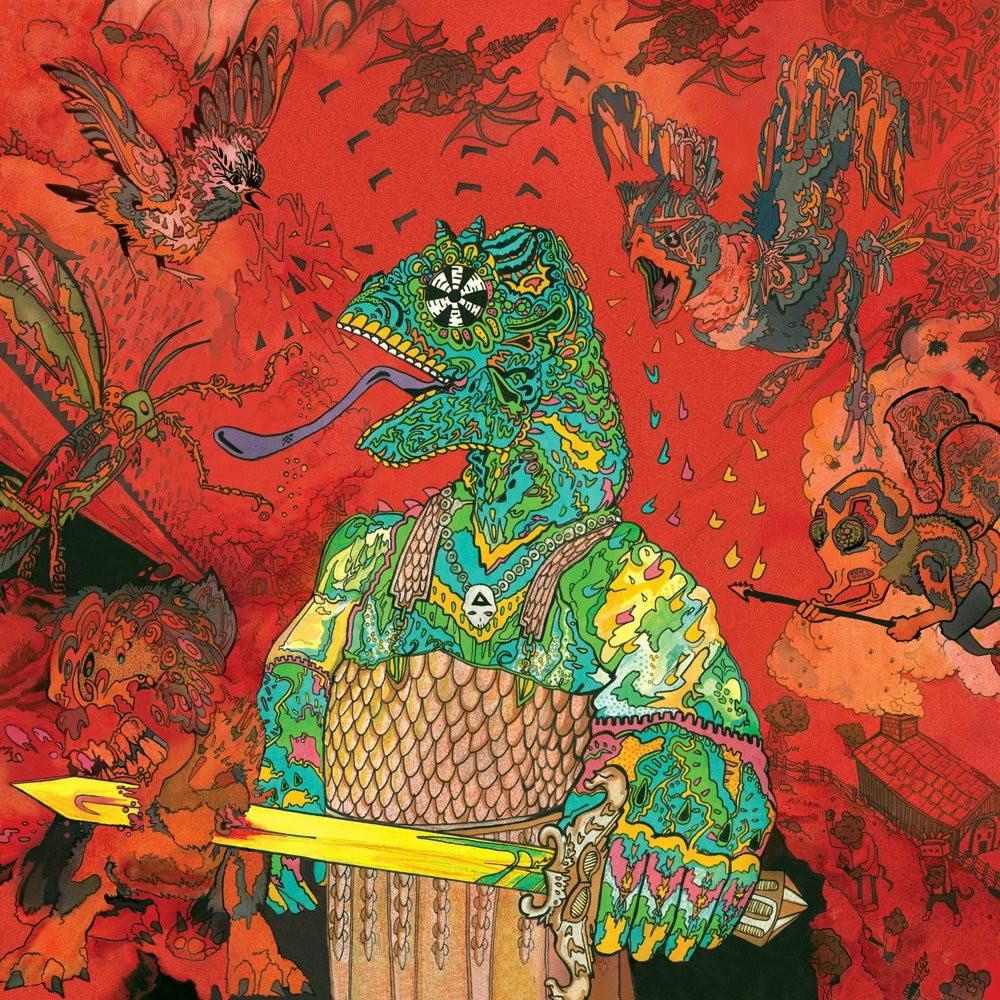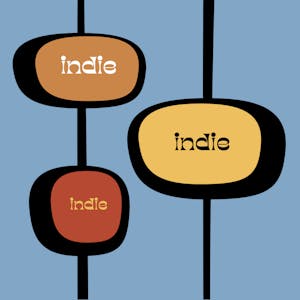King Gizzard and The Lizard Wizard are known for a number of things: for their relentless recording schedule that resulted in them releasing 5 full length albums in a single year in 2017, their chaotic and ear splitting live shows around the world, and their experiments in microtonality on releases such as “Flying Microtonal Banana” and more recently, “KG/LW” to name a few. These achievements and characteristics have placed the band at the pinnacle of modern indie rock with no sign of slowing down. But before the critical acclaim, cult-like fanbase, and signature additions of second drummers and modded guitars, these alliteration-fueled Australians were creating searing, white hot, cacophonous garage rock that shocked the Australian music charts. 12 Bar Bruise, the debut album of King Gizzard and The Lizard Wizard turns 10 years old today, and it is still one of the most unique and important albums in modern indie rock.
Calling this album “Garage Rock” is an understatement. This is “Abandoned Glass Factory Rock”. This is “Punk House Bathroom Rock”. Any garage that would be subject to the Gizzard’s early practices would be the scourge of any middle-class Melbourne suburb it was contained in. This album is marvelously noisy. Vocalist Stu Mackenzie’s caterwaul “WOOOOOAAAAAA”s sound like something between a dying cat and an air raid siren. The band’s triple-layered fuzz and effect-drenched guitars make you question at what point these six stringed hunks of wood stop being instruments and begin their life as power tools. Listening to this album you will find yourself awash in a sea of noise with no desire to find shore. This isn't to say, however, that 12 Bar Bruise is a formless or dissonant mess by any means. The Gizzard’s incredible talent in riffage and rhythm will ensure that while you're in this sea of noise, you'll still be banging your head underwater.
This quality of noisy bliss is exemplified by the album opener “Elbow”. The album explodes into your eardrums with one of Mackenzie’s signature shrieks and a wall of ruthless power chords. This rude awakening then swings into a lead line that remains one of the harshest fuzz tones to have ever graced my ears. This song is an ugly masterpiece that immediately pulls you into The Gizzard’s sonic onslaught. The simple and straightforward lyrics, as well as the repeated chants of “AY AY AY AY” by the whole band cut through all of the instruments and remind you that the people making this album aren't pretentious pedal twiddlers or robotic guitar nerds, but rather a group of friends having the time of their life making the music they find fun. The album does a fantastic job of changing up topics and sounds where needed in order to keep the listener wanting more. “Muckraker” and “Nein” are more fun garage bangers, both having incredible tempo changes and detailing the feeling of waking up after a long and debaucherous night out in their own unique ways. 12 Bar Bruise is a slower, more melodic track recorded by the band using nothing but 4 iPhone 4s strategically arranged around their studio. “Sam Cherry’s Last Shot” features English actor Broderick Smith, father of keyboardist Ambrose Kenny-Smith, delivering a truly riveting and haunting spoken-word performance over a spaghetti western-themed jam by the band. “Garbage Liddiard” features what is almost certainly the greatest harmonica solo by any Australian psychedelic rock band ever at the time of its release. The result is an album, while jagged and harsh, that keeps you hooked to listen to the very end and then once more for good measure.
This album and its 10th birthday are important, not just for being the release that broke Gizzard into the mainstream, but for the influential status it has over the current indie rock movement in general. Boundary pushing modern noise makers such as Black Midi, The Frights, and The Garden utilize guitar effects, unconventional instrumentation, and pushed to the limit vocal performances in a way this album did years before these now-established bands were even formed. In 2012, indie had begun its turn towards the softer side: Mac Demarco released his first two albums, Tame Impala debuted “Lonerism”, and Beach House was in full swing. Though unconventional and revolutionary at the time, the energy and outright sonic demolition of 12 Bar Bruise can be seen now as something that would fit right in among today's indie rock scene. And to hold that position as an album released a decade ago, that's something to celebrate.
Listen to 12 Bar Bruise with the links below!



